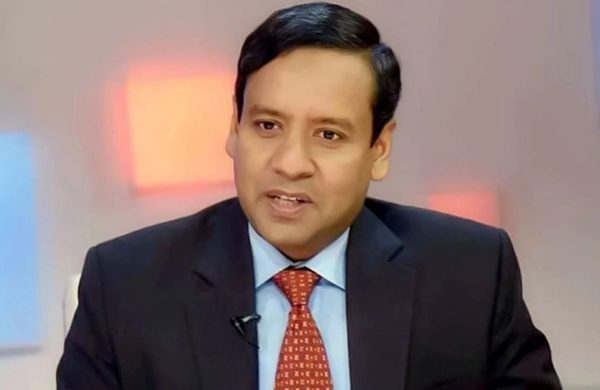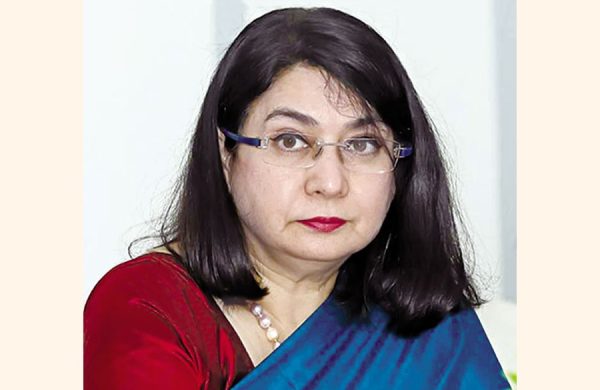The disastrous puppet-show politics!
- Update Time : Monday, October 13, 2025

—Golam Maula Rony—
Those who habitually vilify Mir Jafar, Khondaker Mostaq, or Abu Jahl might be surprised to learn that, in their own times, these men were considered among the most astute and capable figures. Take Abu Jahl, for instance. His real name was Abu al-Hakam, which means “Father of the Learned.” Across regions stretching from Hejaz, Najd, Nufud, and Hayil to Yemen’s Hadhramaut and even Damascus in Syria, he was recognized as a wealthy, learned, cultured, and courageous tribal leader.
How did Abu al-Hakam become known as Abu Jahl—“Father of Fools”? In short, between 610 and 622 CE, during the period of the Arabian Spring, he rejected the politics of the time. Succumbing to tribalism, pride, and the influence of his fellow chieftains, he chose to go against the current and, despite knowing the truth, became an agent of the forces of darkness.
Although not as famous as Abu Jahl, from 1740 to 1764, Mir Jafar Ali Khan was one of the leading figures in pan-Indian politics and the key political personality in Bengal, Bihar, and Odisha. Extremely polite, skilled in military strategy, remarkably handsome, elite, and a battle-tested commander, Mir Jafar’s descent into being known as the “worst traitor of all time” is astonishing when examined through impartial historical evidence. After the period of Nawab Alivardi, he became entangled in the palace politics of Bengal, Bihar, and Odisha, losing his inherent virtues and falling into the traps set by local and foreign conspirators, his wayward son Miran, and the greed of his associates, ultimately reducing himself to the status of a mere puppet.
Khondaker Mostaq’s notoriety stems from his role in the 1975 assassination of Sheikh Mujibur Rahman and as a beneficiary of the post-’75 regime. The people of Bangladesh continue to vilify him as a treacherous, hypocritical traitor, on par with Abu Jahl and Mir Jafar. Yet, from 1950 to 1975, there were very few politicians in East Pakistan—and later independent Bangladesh—who were as educated, polished, shrewd, and elite as Khondaker Mostaq. Though his inner greed and preference for strategy over risk-taking led him to ally first with opponents of Sheikh Mujibur Rahman and later act as an accessory to the assassins to seize power, in reality, he was merely a puppet on the political stage.
Having briefly described these three infamous figures, let us move on to today’s headlines and the ongoing politics of our country. Many of you may have read the immortal literary work Putul Nacher Itikotha (“The Tale of the Puppet Show”) by renowned writer Manik Bandopadhyay. For those who haven’t, you have surely witnessed puppet shows in rural fairs, on theater stages, television, or in films. A puppet’s hands and feet are tied with strings or threads, and someone manipulates it while delivering amusing commentary that entertains the audience. We all know this, but we are mere spectators enjoying the harmless amusement of the puppet show.
However, when such puppet-like events occur in politics, the resulting destruction for a nation is incomparable. Politics represents the highest level of human social interaction. Its thought and philosophy transcend all other domains. Philosophers who focus on politics cannot be compared with philosophers of other disciplines. And when political philosophers become generals, kings, emperors, or amirs, history witnesses unprecedented events. Think of Marcus Aurelius in Rome, Hazrat Ali (RA) in Arabia, Confucius in China, or Chanakya in India—no one has surpassed their contributions to history.
Thus, only the most capable and virtuous individuals can succeed in politics. When weak-hearted, greedy, low-born, uneducated, or foolish people take control, politics loses its beauty, and unqualified rulers are manipulated like puppets by domestic and foreign self-interested networks.
Our Ganges delta—the region of present-day Bangladesh—has fallen into the trap of puppet politics numerous times throughout its thousand-year history. Under Pakistan, we had Aiub Khan as a puppet of Monayem Khan, and in independent Bangladesh, the puppet rule of Mostaq caused unprecedented bloodshed, terror, and the sowing of mobocracy across the offices of Ganabhaban, Bangabhaban, cantonments, courts, secretariats, prayer halls, universities, and the political sphere, affecting 180 million people in Bangladesh to this day.
Today, even amid independence, we experience the terror of subjugation. The constitution, which is based on law and reflects thousands of years of human hope, aspiration, thought, and the struggle for freedom, now seems of little significance. We dare to ignore it, while observing cantonments being seized, secretariats ravaged, and the Supreme Court disrupted. Yet we tremble like tender leaves at hearing about an 80-year-old woman being harassed. Even if we do not fully comprehend the catastrophic consequences of political puppet shows, the animals, plants, and even the moon and stars can sense the nature of our courage—or lack thereof.
Whether in 2025 Bangladesh politics reflects a tradition of excellence or a rehearsal of destructive puppet shows is a question of little immediate interest. Yet when police officials publicly announce resignations out of helplessness, when authorities of the judiciary debate over staying afloat, when news of the local neighborhood is deemed more important than hunger, or when open tenders are awarded through bribery to entice puppet-like officials, or when the property, reputation, and life of an individual are ravaged by the terror of mobocracy, the terrifying consequences of puppet-like politics push us toward the grave rather than securing our survival.
—————————————————————-
Author: Former Member of Parliament and Political Analyst

















